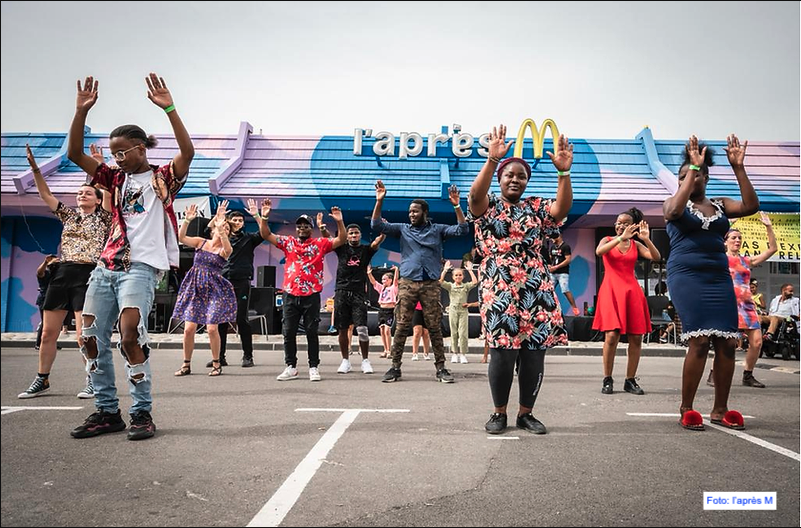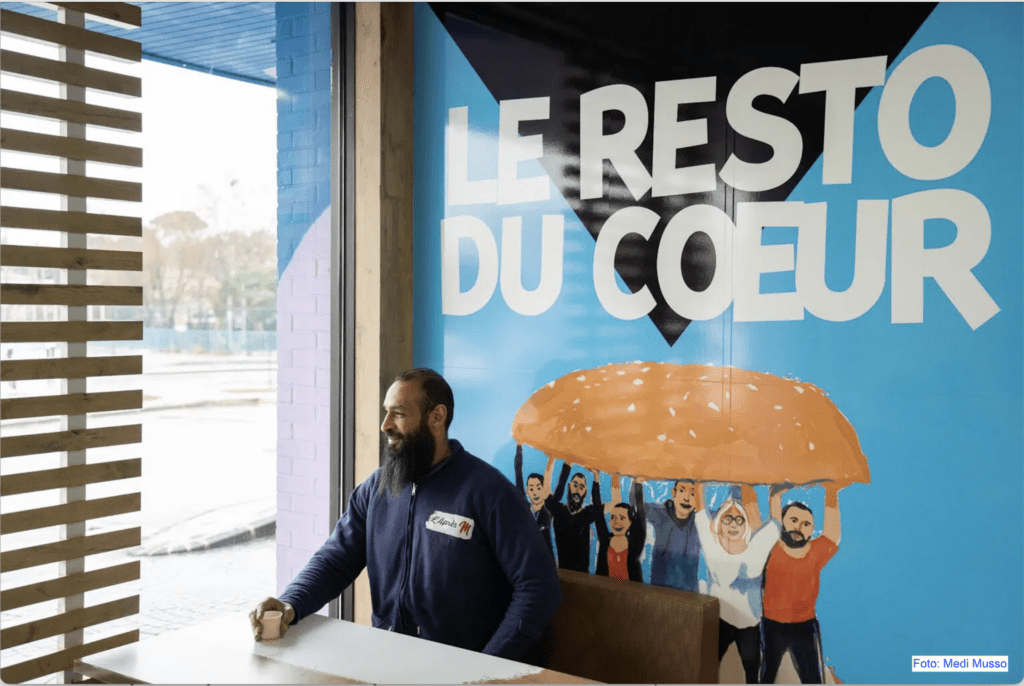France – l’Après M
The idea that food should serve society, not the commercial interests of a small group of people, is not new. At the end of 2019, a McDonald’s restaurant in a suburb of the French city of Marseille went bankrupt. The restaurant played an important social role in the neighborhood, where over 40% of the population lives in poverty and where there are hardly any public facilities. When the closure went ahead despite protests, local residents decided to occupy the building and give it a social purpose. The commercial burgers and fries made way for solidarity cauliflower, bananas, bread and hot dishes such as couscous: The old McDonald’s was transformed into a food bank and affordable restaurant, run by and for local residents.
In the first five weeks alone, the food bank provided food to 1,000 people. These were people who truly needed it, as poverty in this neighborhood is immense. One resident describes it: “People live here cramped in apartements like chicken on poultry farms, facing hunger, drug violence, and constant police checks. And there’s the constant insults from people who look down on them—out of racism, but mainly out of aversion to poverty.” That’s why McDonald’s played such an important role in the neighborhood. It was “just” a fast-food restaurant, but for many people in the neighborhood, it was the only place to gather, and for many young people in the neighborhood, the only opportunity for a job and a better future.
Former McDonald’s employees who now run L’Après M say the fast-food restaurant didn’t go bankrupt because the branch wasn’t performing well, but because workers had formed a union and lobbyd for better working conditions. The parent company wanted to get rid of the rebellious branch, fearing it would spread to other branches.
After the closure, and as the corona crisis took hold, McDonald’s was quickly occupied by former employees, activists, and local residents. Many people lost their income overnight, and the closure of schools and the lack of school meals exacerbated hunger. The signs on the walls still advertised burgers, fries, and happy meals, but in the restaurant’s parking lot, thousands of pounds of vegetables, fruit, bread, and juice were being given away. Completely free. All donations from farmers and shops that would otherwise throw away the food.
An illegal occupation became a legal takeover when the mayor of Marseille, driven by the success of the Après M food bank, decided to purchase the McDonald’s building. It was the first time in history that citizens seized a branch of one of the world’s largest and most wealthy companies. And life after the big M is a life that serves not capital, but people. A noticeboard in the restaurant reads: “Alone you go fast, together we go far,” and a former McDonald’s employee, now an Après M employee, says: “Here, we no longer sell Big Macs and we no longer exploit workers. Here, we reach out to each other.”

A local artist used leftover blue, pink, and purple paint scraps from French highways to give the old fast-food restaurant a fresh new look. The capital “M” remains, and the restaurant’s characteristic shapes remain recognizable, but the look is now playful and rebellious. L’Après M also uses the slogan the multinational used in France, but to avoid copyright issues, they made some clever adjustments. “Venez comme vous êtes” (come as you are) became “Comme vous êtes, vous venez” (as you are, you come). This also emphasizes the “you”—the employee, the eater, the community—and not the multinational’s cash registers that need to be filled.
Through crowdfunding, the team behind l’Après M raised enough money to reopen the restaurant. The parking lot is now used as a food bank and herb garden, and inside, people can order fries and burgers made primarily with local ingredients. Undocumented immigrants eat for free, while others pay €3 for a meal. One of the burgers was designed by a local chef with three Michelin stars. A former manager of one of France’s largest NGOs helped with the crowdfunding and establishing the organization’s structure. At l’Après M, people not only receive free food from the food bank and a low-cost meal in the restaurant, thanks to subsidies from the local government, but there’s also a project to train and re-employ people distanced from the labor market.


